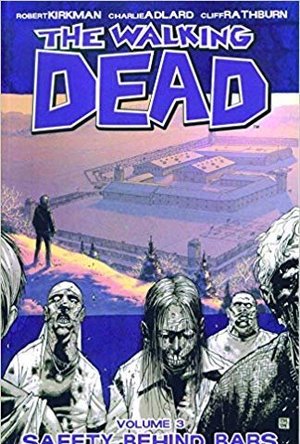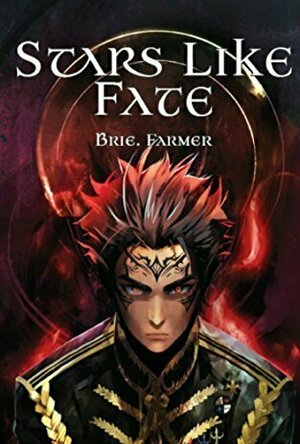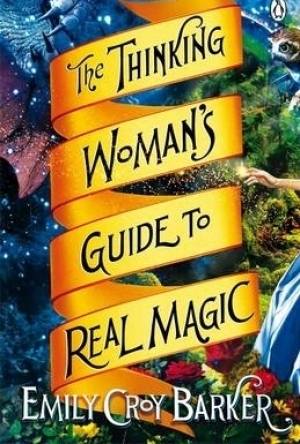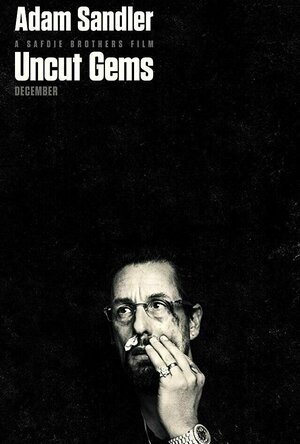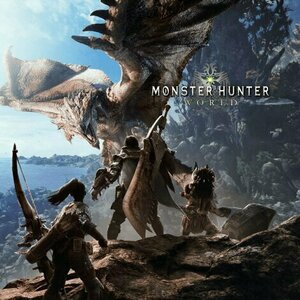
Mondly: Learn Italian FREE - Conversation Course
Education and Travel
App
Learn Italian with free lessons daily. Let Mondly teach you the Italian language quickly and...
Marylegs (44 KP) rated The Walking Dead, Vol. 3: Safety Behind Bars in Books
Aug 14, 2019
As always the drawings are so good and the story flows so well. It is so easy to read and become absorbed into this world that is changing all the characters personalities. I still stand by the main story being how people adapt to this changing world rather than it being about zombies. They are just a catalyst to bring out peoples raw behaviours when put into dire situations.
Becs (244 KP) rated Stars Like Fate in Books
Oct 2, 2019
Style: Casual to light
Point of View: Third person
Difficulty reading: First couple of chapters were difficult to get into but after the fifth chapter, I couldn’t put the book down! It has it’s fast-paced moments that has you flipping through pages and it has its slower moments that take a bit more effort to get into. A very fun read!
Promise: The book promised a fantasy, adventure packed book and it delivered it on a silver platter. The characters are mythical, the countries are mythical, and magic is involved – leading to the fantasy aspect of things. Nyole and Saphryis both go on a long and heartbreaking journey to gain Saphryis her memories and power back – leading to the adventure aspect of things.
Quality: An all-around great book. If you like World of Warcraft, you’ll like this book. It touches on the mythical creatures in a way that resembles characters in World of Warcraft.
Insights: I loved the fact that it was a fantasy young adult book. These types of books are one of my favorite genres. When I first got the book, I read the synopsis and instantly thought of World of Warcraft. Reading, I had a difficult time with the first five chapters. It wasn’t that they were bad, it was more along the lines of they lacked in the background and the flow seemed like it was all over the place. Once I hit chapter six though, I couldn’t put the book down. The background and plot leveled out so it was a much easier read. As I was coming down to the last couple of chapters, I realized I didn’t want it to end. I wanted it to continue on into an everlasting void of Stars Like Fate because fate is simply ineffable.
Ah-Ha Moment: When Nyole finally realized that he was related to King Aryon. I would also become furious if I was related to someone as cruel as King Aryon the murderer.
Favorite Quote: “Fate is unexplainable, Fate is unfair, but Fate will always happen.” – Nyole realizes that if he never would have met Saphryis, then he would have never known what was coming in the future. But with meeting her, he realizes what is coming and has a faint idea what Saphryis will mean to him.
“ ‘I need you to live, Saphryis. I need you around,’ Nyole murmured before adding a selfish wish. ‘I want you beside me.’ ” – I feel this is the moment that Nyole falls just a bit in love with Saphryis. Which is good, because I ship them 110%.
What will you gain: A love for a new and upcoming author with an imaginative world that you can just step right into. Plus an awesome book worth a re-read!
Aesthetics: Cover design was really nice, character list was great, nice size book – not too heavy and not to thin, font and size was good – didn’t strain the eyes, there were a few grammatical errors – but are barely noticeable, third-person point of view, a riveting action fantasy book that will keep you on your toes.
“Fate is simply ineffable.”
Goddess in the Stacks (553 KP) rated The Thinking Woman's Guide to Real Magic in Books
Jan 12, 2018
In Nora Fischer, we have a modern, independent, feminist woman transported to a place and time where women are inferior (by nature, most think.) There are even linguistic influences that make them inferior; women speak with a lot of "um" and "well" type words in their speech, while men don't. When Nora protests that this makes women's speech sound weaker, she's told that that's "just how women speak." Seeing her confronted with the sexism ingrained within the medieval style culture, and seeing her confront Aruendiel with how sexist it actually is, was a wonderful sub-plot of the book.
The main plot was well-paced and interesting - after being kidnapped by Ilissa at the beginning of the book, and enchanted into being a beautiful, love-struck little ninny, Nora recovers herself with the help of Aruendiel, and spends the rest of the book evading re-capture and finding her place in this new world. The descriptions are colorful, the characters are deep and fascinating, and the land and culture itself shows just how much thought went into creating this world. This is an absolutely spectacular debut novel, in my opinion, and I cannot WAIT for the sequel, since Barker did leave a few questions unanswered at the end of the book. I really can't rave about this book enough. If you like fantasy, (or Pride and Prejudice, since this book, while not attempting to be a retelling or anything, had a lot of the same feel) you should really pick this one up.
You can find all my reviews at http://goddessinthestacks.wordpress.com
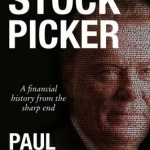
The Stock Picker: A Financial History from the Sharp End
Book
Paul Mumford is a noted stock-picker with over 50 years' experience in the markets - first as a...
Yorgos Lanthimos recommended Uncut Gems (2019) in Movies (curated)
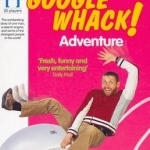
Dave Gorman's Googlewhack Adventure
Book
If someone called you a 'googlewhack' what would you do? Would you end up playing table tennis with...
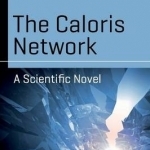
The Caloris Network: A Scientific Novel: 2016
Book
The year is 2130. The first-ever expedition is sent to Mercury to search for the cause of an unknown...
Anna Marie Green (7 KP) rated the Xbox One version of Monster Hunter World in Video Games
Jul 3, 2018 (Updated Jul 3, 2018)
But should they?
MH:W is, at its core, is a dungeon crawler designed to feel open-world within its own constraints. With beautiful environments such as the Coral Highlands and the toxic areas festering beneath the Rotten Vale, MHW looks and feels much more massive than the trodden paths you follow. Your first hunts feel thrilling as you take different paths to chase your limping prey, and a cycle of different weather, monsters, and endemic life keep you invested in immersion.
But after hunting a tempered Nergigante for the 20th time, things do begin to fall out of place. You experience the malaise of a Saitama-like hero. Have you become too strong?
Challenging fights become the norm. The occasional arch-tempered monster appears, but scaled damage isn't always the same thing as new difficulty.
In the handheld games, there were dozens of monsters with distinct abilities and variations. MH: Generations had 73 large monsters to hunt. You could even play as a palico.
But that variety just isn't in MH:W.
Granted, the game is an experiment and has provided some good content for no extra cost to the players, which is a feat of its own in comparison to all the other big game developers (EA, Microsoft, Square Enix, Bethesda). They also do an excellent job managing weekly challenges and encouraging community between players. Kulve Taroth hunts were a blast and the free meal in the Hub was an excellent bribe.
MH:W still needs more monsters and at least one new environment. Since its release in January 2018, only three monsters have been added to the game: Deviljho, Kulve Taroth, and Lunastra. Behemoth from Final Fantasy is also making an appearance this July. That's a monster every two months. Don't get me wrong here— that's a fair schedule for content release. Overwatch clocks in at about three months for every hero, so two months is a respectable jog for the quality of the quality of the game. Still, even Overwatch -with it's full player-controlled roster- can become a bit of a slog without those regular updates.
The easiest fix? Capcom needs to finally add in G-Ranks with weapon rarities 9 and 10, and the terrifying monsters to match. The other MH games have generally had these ranks, and the MH:W G updates have been teasing us in rumors since the release, yet we haven't seen any evidence of their existence. A massive content update containing new unique weapons trees, rarity 8 varieties of dead-end trees, armor transmogs, new endemic life and monsters, better armor designs, and more material choices... Capcom has incredible potential on their table that could rekindle gamers' interest in helping the Fifth solve the new mysteries of the New World.
Or, god forbid, suffer the gamers by making them by Monster Hunter: World 2 just to feel like they actually completed the first game.
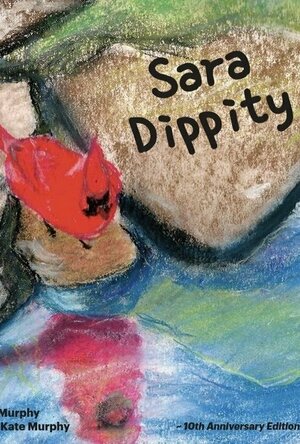
Sara Dippity
Book
Sometimes the answers we’re looking for can be found right in our backyard. A heartwarming...
children's book
